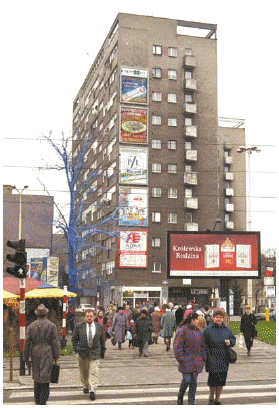Danish-Polish Environmental Co-operation 1991-2000
Chapter 5The sectorintegrated environmental assistance
| Environmental co-operation around the Baltic Sea. |
Environmental co-operation around the baltic sea
Protection and improvement of the environment can not only be seen as an isolated environmental task. The environmental conditions are dependent on and influenced by all the different sectors in the society. Therefore, the countries around the Baltic Sea in 1998 adopted the Environmental Sector Programmes. The objective of the programmes is to support sustainable development in all sectors in the Baltic Sea area. And to assist in the adaptation to EU legislation and establishment of implementing systems.
The overall objective of the Sector Integrated Environment Assistance in the Baltic region is to promote environmental sustainable development based on marketeconomy principles in Estonia, Latvia, Lithuania, Poland and the Russian regions St. Petersburg and Kaliningrad. The programme builds on objectives set in the Baltic Agenda 21, rooted in Global Agenda 21 and the Rio Conference in 1992 and adopted by the countries around the Baltic Sea in 1998. The assistance is focusing on environmental issues in specific sectors.
The activities of the sector-integrated environment programme are schedules as partnerships between a range of Danish Ministries or government agencies and their colleagues in recipient countries. The programmes are assisted and co-ordinated by DEPA and the Polish Ministry of Environment. The programmes are further - demanding on needs - being implemented in a close co-operation with the DANCEE programme.
The decentralised scheme of this assistance ensures a close integration of environmental sustainability into the general sector development.
The Danish authorities administrating the Sector Programmes are:
| Ministry of Labour | |
| Emergency Management Agency | |
| Danish Energy Agency | |
| Danish Agency for Trade and Industry | |
| Ministry of Food | |
| Ministry of Education |
DEPA is responsible for the overall coordination of all programmes.
Another important part of the sector programme is to assist the countries in their preparations for the future EU-membership. To be a member of the EU it is required that the candidate countries fulfil the EU legislation and the environmental standards which often relates to horizontal legislation. Such as: Environmental Impact Assessment, Access to information, reporting and Implementation of environmental Directives, European Environment Agency (EEA), LIFE.
